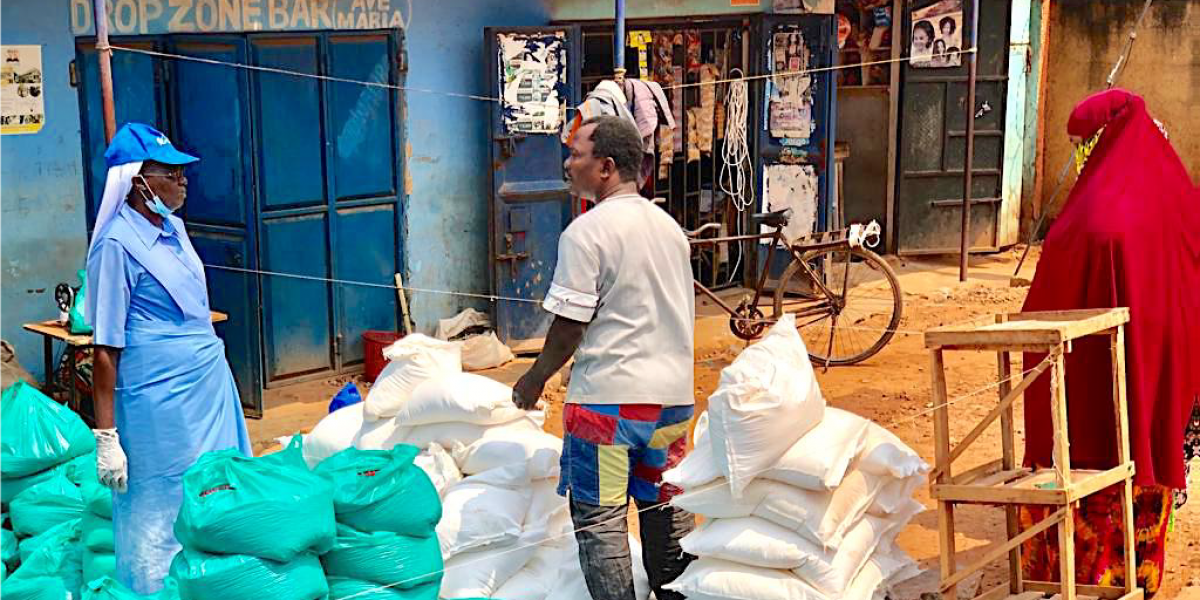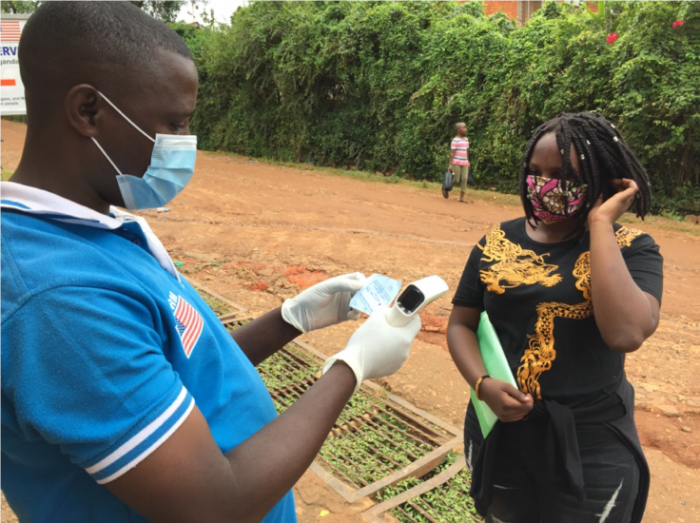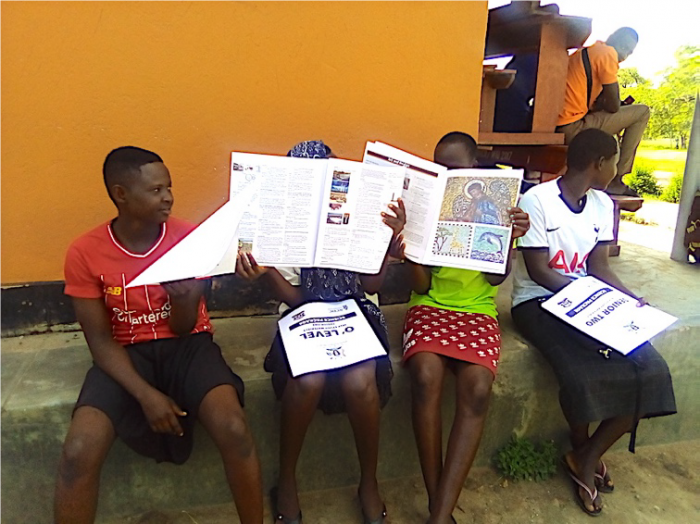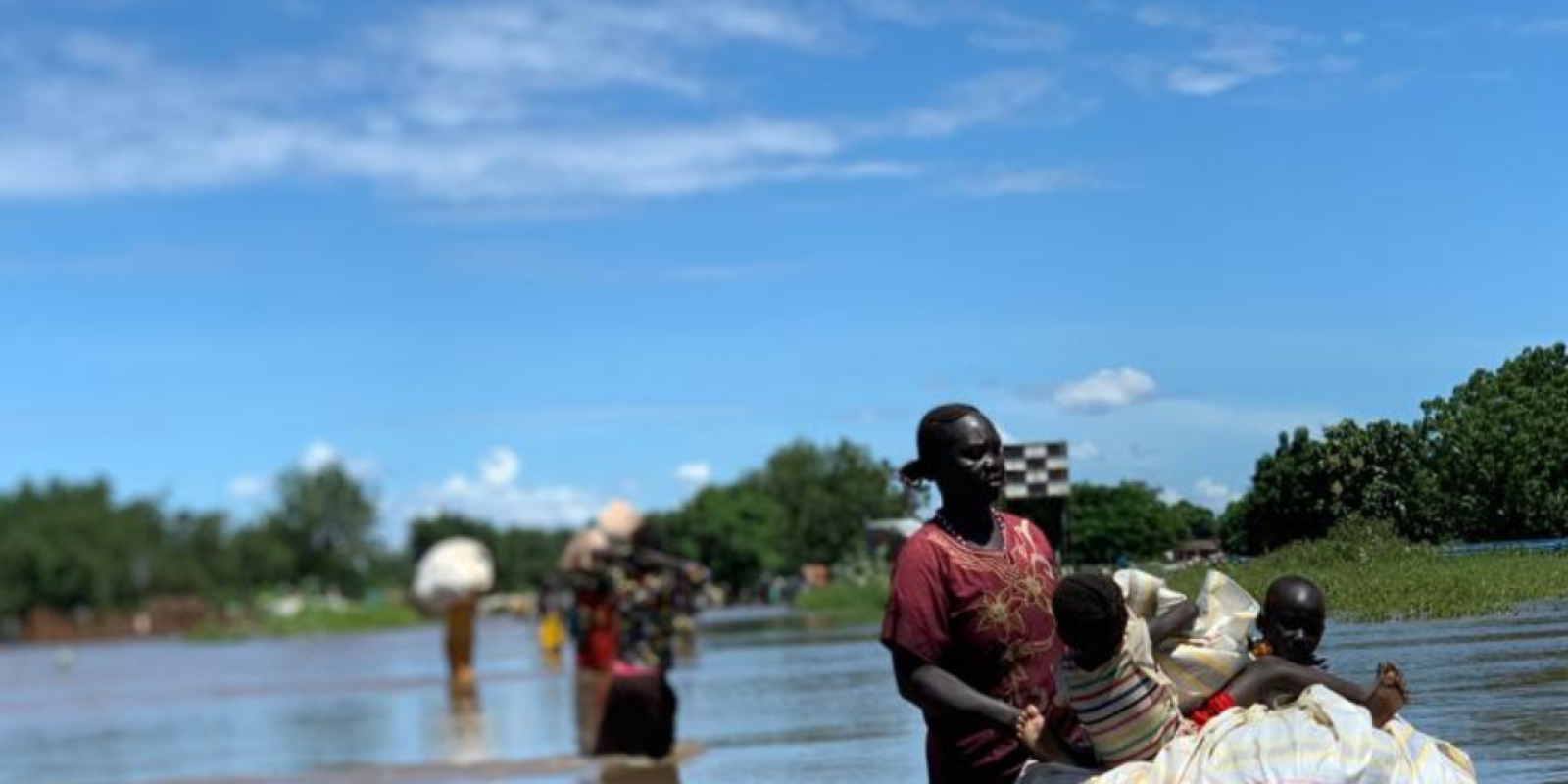COVID-19 Response in Uganda: Adaptation and Continuation
11 August 2020

JRS Uganda is working to ensure refugees in Adjumani and Kampala, Uganda have access to necessary physical items during the Covid-19 pandemic, as well as psychosocial support and critical updates. Adapting JRS operations to a heavily virtual and socially–distanced world has brought with it no shortage of challenges, but we continue to focus on what can be done to serve and advocate for refugees.
JRS is advocating that forcibly displaced people be accounted for in the nation’s Covid-19 response efforts. By working with host communities through providing hand-washing points in public locations and training for healthcare workers, we are developing and following a more comprehensive approach to the crisis.
To combat food insecurity in Kampala, JRS Uganda Country Director, Fr. Frido Pflueger, S.J. said, “We started to give admission cards through the leaders of the different refugee communities, and this worked out very well. The leaders selected the people most in need and gave the cards.” In total, food was given to over 25,000 individuals between mid-May and June.

As JRS values holistic support to displaced people, we also provided medical assistance and issued face masks to individuals in the community. Since masks are now essential, a fashion designer is working with and training displaced people to construct face masks for JRS classrooms and staff.
In Adjumani, JRS is adapting to a distance learning model by working with communities to continue lessons via radio for over 100,000 students enrolled in more than 150 primary and secondary schools. Additionally, JRS printed and distributed educational materials to individual students. By collecting, distributing, and installing essential items in 2020, JRS is taking ample measures to facilitate a safe return to school. Some of these essential back–to–school items and services include thermometers, hand washing points, infection prevention training for educators, and mental and psychosocial support.

Undoubtedly, mental health support has been critical throughout the Covid-19 pandemic, due in part to loss of livelihood and isolation. Psychosocial support efforts continue via radio, especially for those affected by domestic and gender-based violence. Phone hotlines are also available for refugees when needed. To further encourage and instill protective values in youth, JRS is facilitating a child protection talk show that works with young people to raise awareness of child abuse, as well as the significant roles of authority figures, such as parents and teachers, in their communities.
Furthermore, two new radio services are supporting communities in Adjumani: a pastoral care radio ministry now delivers religious services and faith-based programs for families and children, and a peacebuilding and reconciliation show highlights conflict alleviation in the context of Covid-19.
JRS would not be able to effectively respond to the developing needs of refugee communities during Covid-19 in Kampala and Adjumani without the heartfelt support of donors, volunteers, community members, and, most of all, the people themselves.



